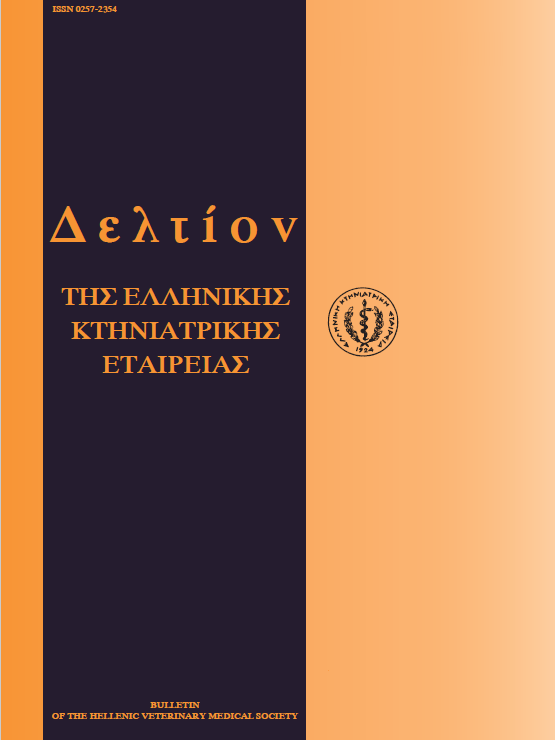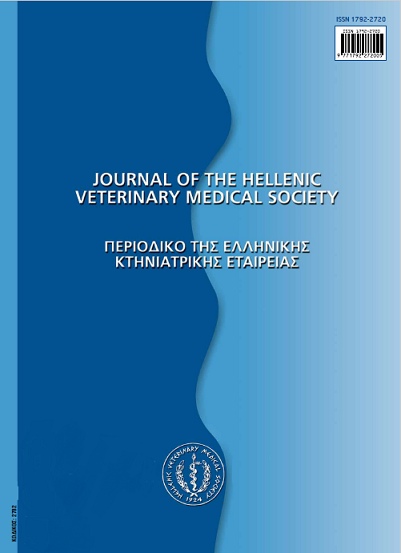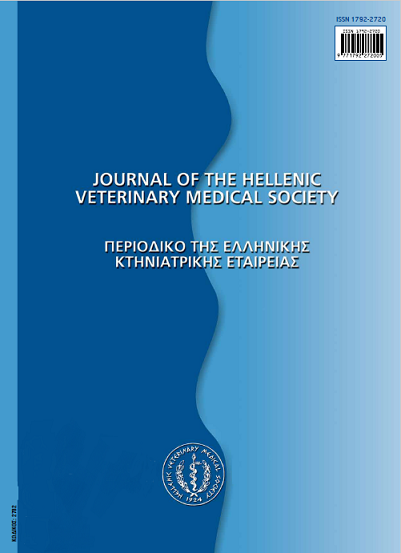Pyometra in the bitch
Abstract
Pyometra is the final stage of a developing cystic endometrial hyperplasia. The aetiopathogenesis remains unresolved. Repeated barren oestrus cycles, excessive use of progestins or oestrogens as well as a bacterial infection of the endometrium contribute to the development of pyometra. Pyometra sould be suspected if, a post-estrous, usually aged bitch is presented with a varying degree of depression, inappétence, polydipsia, polyuria, dehydration, abdominal distension, manifesting or not an abnormal vulvar discharge. Abdominal radiography or ultrasonograpy can confirm the diagnosis. Laboratory findings prove to be helpful in diagnosis, prognosis and treatment. Ovariohysterectomy is the treatment of choice along with proper fluid and antimicrobial therapy for aged or severely ill bitches or for those with low breeding value. Medical treatment with Prostaglandin F2a combined with bactericidal antibiotics can be recommended, provided that the bitch is young, of high breeding value and with mild clinical signs.
Article Details
- How to Cite
-
VERVERIDIS (Χ. ΒΕΡΒΕΡΙΔΗΣ) H., & BOSCOS (Κ. ΜΠΟΣΚΟΣ) C. (2018). Pyometra in the bitch. Journal of the Hellenic Veterinary Medical Society, 51(1), 50–56. https://doi.org/10.12681/jhvms.15657
- Issue
- Vol. 51 No. 1 (2000)
- Section
- Review Articles

This work is licensed under a Creative Commons Attribution-NonCommercial 4.0 International License.
Authors who publish with this journal agree to the following terms:
· Authors retain copyright and grant the journal right of first publication with the work simultaneously licensed under a Creative Commons Attribution Non-Commercial License that allows others to share the work with an acknowledgement of the work's authorship and initial publication in this journal.
· Authors are able to enter into separate, additional contractual arrangements for the non-exclusive distribution of the journal's published version of the work (e.g. post it to an institutional repository or publish it in a book), with an acknowledgement of its initial publication in this journal.
· Authors are permitted and encouraged to post their work online (preferably in institutional repositories or on their website) prior to and during the submission process, as it can lead to productive exchanges, as well as earlier and greater citation of published work.





